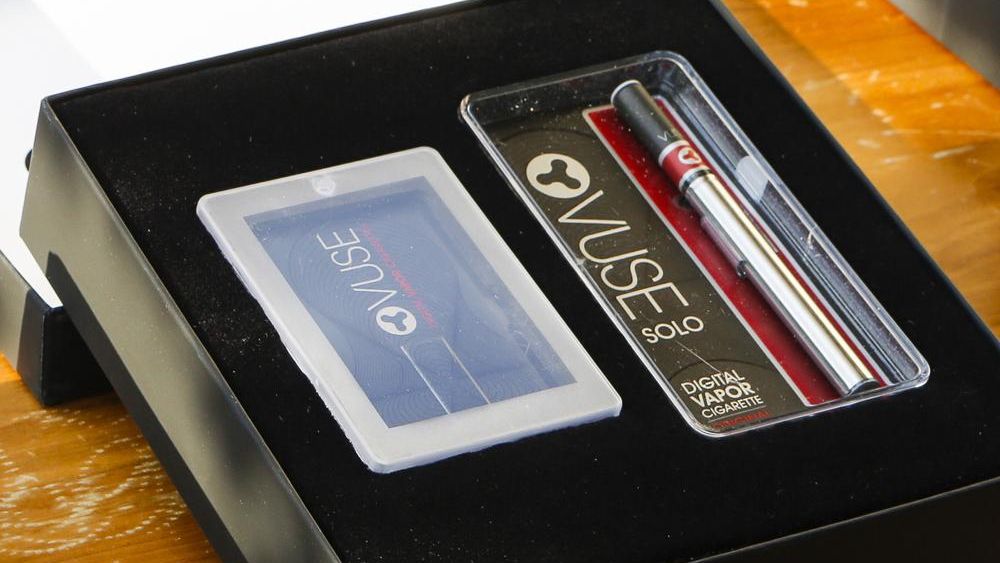Heath officials on Tuesday authorized the first electronic cigarettes in the U.S., saying the R.J. Reynolds vaping products can benefit adult smokers.
The Food and Drug Administration (FDA) said data submitted by the company showed its Vuse e-cigarettes helped smokers either quit or significantly reduce their use of cigarettes, the leading preventable cause of death in the U.S.
“Today’s authorizations are an important step toward ensuring all new tobacco products undergo the FDA’s robust, scientific premarket evaluation,” Mitch Zeller, director of the FDA’s Center for Tobacco Products, said in a statement.
“The manufacturer’s data demonstrates its tobacco-flavored products could benefit addicted adult smokers who switch to these products – either completely or with a significant reduction in cigarette consumption – by reducing their exposure to harmful chemicals,” Zeller added.
Tuesday’s first-of-a-kind decision is part of a sweeping effort by the FDA to bring scientific scrutiny to the multibillion-dollar vaping industry after years of delays.
In September, the agency said it had rejected applications for more than a million e-cigarettes and related products, mainly due to their potential appeal to underage teens. But regulators delayed making decisions on most of the major vaping companies, including market leader Juul.
The FDA’s decision only applies to Vuse’s refillable Solo Power device and its tobacco-flavored nicotine cartridges. The FDA said it rejected 10 other requests from the company for other flavored products, but did not disclose details. The agency is still reviewing the company’s request to sell a menthol-flavored nicotine formula.
"We must remain vigilant with this authorization and we will monitor the marketing of the products, including whether the company fails to comply with any regulatory requirements or if credible evidence emerges of significant use by individuals who did not previously use a tobacco product, including youth," the statement continues. "We will take action as appropriate, including withdrawing the authorization."
E-cigarettes first appeared in the U.S. more than a decade ago with the promise of providing smokers with a less harmful alternative to smoking traditional tobacco cigarettes. The devices heat a nicotine solution in a vapor that’s inhaled.
But there has been little rigorous study of whether the e-cigarettes truly help smokers quit. And efforts by the FDA to begin vetting vaping products and their claims were repeatedly slowed by industry lobbying and competing political interests.
In recent years, the vaping market grew to include hundreds of companies selling an array of devices and nicotine solutions in various flavors and strengths. But the vast majority of the market is controlled by a few companies including Juul Labs, which is partially owned by Altria, and Vuse.
To stay on the market, companies must show that their products benefit public health. In practice, that means proving that adult smokers who use the products are likely to quit or reduce their smoking, while teens are unlikely to get hooked on them.
"The FDA is aware that the 2021 National Youth Tobacco Survey (NYTS) found approximately 10 percent of high school students who currently used e-cigarettes named Vuse as their usual brand," the agency wrote in its statement.
"The agency takes these data very seriously and considered risks to youth when reviewing these products," the FDA continued. "The evidence also indicated that, compared to users of non-tobacco flavored ENDS products, young people are less likely to start using tobacco-flavored ENDS products and then switch to higher-risk products, such as combusted cigarettes. The data also suggest that most youth and young adults who use ENDS begin with flavors such as fruit, candy or mint, and not tobacco flavors."
"These data reinforce the FDA’s decision to authorize the tobacco-flavored products because these products are less appealing to youth and authorizing these products may be beneficial for adult combusted cigarette users who completely switch to ENDS or significantly reduce their cigarette consumption," the statement added.
The Associated Press contributed to this report.



